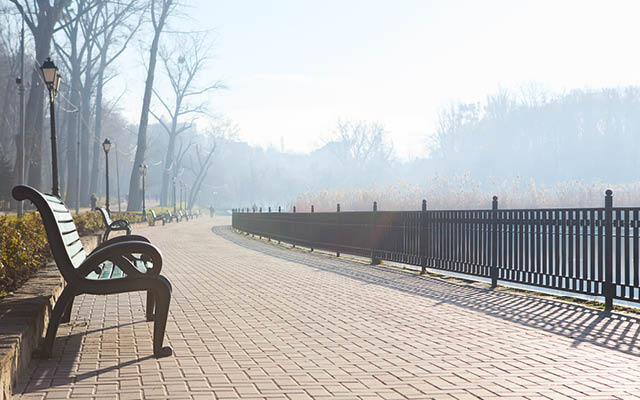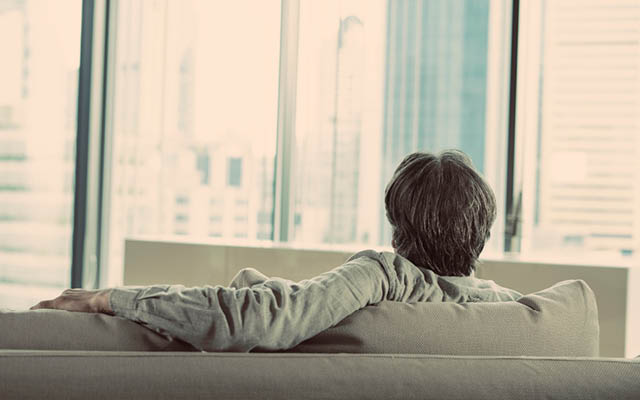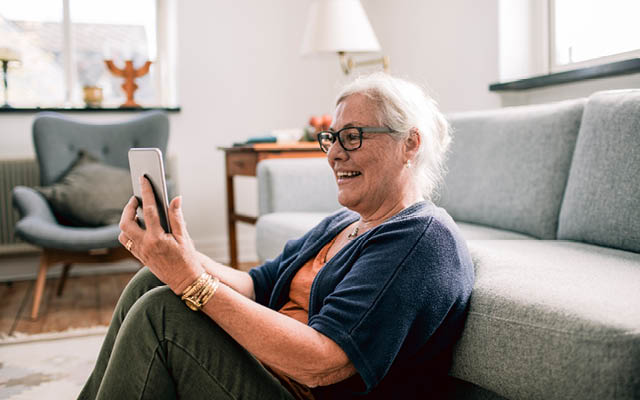I read somewhere the other day that 20 percent of the human race has now been confined to quarters by various government edicts, a fact that struck me as both terrifying and uplifting. On the one hand, it confirmed everybody’s worst fears of the pandemic’s reach; on the other hand, it dramatically illustrated its oddly unifying force: We’re all in this together now.
Still, staying inside these past couple of weeks has made it difficult to fully appreciate the many ways the virus has mangled things beyond our household’s walls. I can absorb the latest news intellectually, but only by extending my boundaries — venturing into the community — can I actually feel it. So, when My Lovely Wife last week noted that we needed a few items from the co-op, I happily volunteered to pedal the four miles there and back.
Wheeling my bike out of the garage, I greeted one of my neighbors who was walking her dog in the alley. “Social distancing!” I cried, rather more jokingly than was probably necessary. I was standing a good 20 feet away from her and the impatient beagle. She chuckled and mentioned she was in self-quarantine, as her housemate was sick. “But we still have to walk the dog,” she confessed. I agreed. We didn’t linger.
I headed north along the quiet avenue, the wind at my back, traffic nearly nonexistent. The playground at Brackett Park was empty, the park building shuttered. On the softball field, a dad and his kid struggled to keep their kite airborne. Farther on, I noticed a few people out walking in the 50-degree sunshine, some attached to dogs, others to strollers. I passed two young men wearing masks. We do what we need to do.
The bike racks on the sidewalk outside the co-op were suspiciously unpopulated when I arrived, so I figured I’d encounter few social-distancing challenges inside. But, coming around the corner to the entrance, I was surprised to see a fellow barring the door. They’d set up the kind of cordon I’m more used to seeing at airports and banks. Nobody was in the queue, though, and I was waved inside.
A co-op worker had recently tested positive for COVID-19, forcing the store to close for a few days of cleaning (and consumer calming), so I expected some changes when it reopened, but I wasn’t prepared for all the masks and gloves and disinfectant. There were no dried prunes in their customary bins, I noticed, and the toilet paper had pretty much vanished — a correlation that struck me as not quite coincidental.
At the checkout counter, the clerk warned me to stay outside of the rectangular grid marked on the floor with red tape until the customer in front of me had concluded her transaction. I appreciated her diligence, but it only brought into sharper focus the encroaching dystopia I’d been reading about in the morning paper. I backed up, slightly abashed, and silently waited my turn.
The clerk sprayed down the counter, wiped the card reader, and motioned for me to advance. She ran my purchases through the beeper while I kept my distance. Small talk seemed slightly inappropriate. I packed up my groceries, dodged folks in the lengthening line outside, and climbed on my bike. All the way back home, my old meditation teacher’s mantra — This is how it is now — looped ruefully through my brain.
I’ve been rereading Pema Chödrön’s classic, When Things Fall Apart: Heart Advice for Difficult Times, which I hoped would offer a timely antidote to our current malaise. Her basic message emphasizes the uncertainty that comes with living in the world and the necessity of embracing both the good and the bad without judgement.
“Things falling apart is a kind of testing and also a kind of healing,” she writes. “We think that the point is to pass the test or to overcome the problem, but the truth is that things don’t really get solved. They come together and they fall apart. Then they come together again and fall apart again. It’s just like that. The healing comes from letting there be room for all of this to happen: room for grief, for relief, for misery, for joy.”
There’s nothing naive about this approach; in fact, it takes great courage and equanimity to accept as an opportunity for learning the pain that life offers. Chödrön describes the morning her husband confessed his infidelity and demanded a divorce as a transformational point in her life. She hated him at that moment, but later admitted that he had actually saved her life.
“When that marriage fell apart, I tried hard — very, very hard — to go back to some kind of comfort, some kind of security, some kind of familiar resting place,” she recalls. “Fortunately for me, I could never pull it off. Instinctively I knew that annihilation of my old dependent, clinging self was the only way to go.”
She tacked a sign above her desk soon after that incident, and it’s remained there to this day: “Only to the extent that we expose ourselves over and over to annihilation can that which is indestructible be found in us.”
To try to insulate ourselves from harm, from discomfort, from failure, she notes, simply produces suffering — because it’s impossible to control all we’re forced to confront every day. It’s only by embracing uncertainty and accepting that conditions arise and recede in each moment that we can feel truly alive.
“Life is a good teacher and a good friend,” she writes. “Things are always in transition, if we could only realize it. Nothing ever sums itself up the way that we like to dream about. The off-center, in-between state is an ideal situation, a situation in which we don’t get caught and we can open our hearts and minds beyond limit.”
Pedaling home from the co-op after my brief brush with the apocalypse, I noticed a mom and her two young kids sitting on their stoop, smiling and applauding someone across the street. Glancing over, I saw a woman sitting on her front steps, strumming a guitar. She smiled and waved as I passed.
I returned her greeting and couldn’t help but smile: This is how it is now.




This Post Has 0 Comments